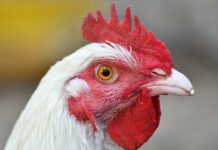FORT WORTH, Texas — Grazing lands make up between two-thirds and three-fourths of the national land base.
The wise management of these lands has environmental and economic implications that exceed common perception or understanding, said Bob Drake, chairman of the Grazing Lands Conservation Initiative.
“Any serious student or practitioner of conservation, land use or ecosystem management cannot reasonably ignore the importance of grazing lands,” Drake said.
“The sheer quantity of land involved demands a serious dialogue among ranchers, conservationists, educators, environmentalists, economists, government agencies and land managers. We need to share our understanding of the theory and practical application of grazing land functions and opportunities.”
Increasingly, such a dialogue is important not only for the continued viability of ranchers but also for the well being of watersheds and communities who rely on these lands for hunting, open space, groundwater recharge, hiking, habitat for both common and endangered species of plants and wildlife, recreational opportunities, carbon sequestration and energy collection.
Conference
The Grazing Lands Conservation Initiative is hosting a forum to facilitate just such a dialogue. On Dec. 13-16, Grazing Lands Conservation Initiative will host its fourth national conference in Reno, Nev., intended to facilitate the exchange of information on successful “cutting edge” grazing management technologies — especially those with environmental and/or social benefits, applied research on grazing lands, public policy implications of grazing, issues related to the agricultural-urban interface, and the economic and marketing implications of grazing.
Ranchers as presenters. One thing that sets Grazing Lands Conservation Initiative apart from other conferences is its focus on ranchers as presenters.
“We know experts come from academia, government and the non profit world and we welcome them all, but we also look for the “cowboy expert” who has gained his — or her — expertise through long hours with livestock and first-hand exposure to all sorts of elements — natural, economic and political,” said Drake.
In conjunction with hosting the conference in Reno, Grazing Lands Conservation Initiative in 2009 will give increased focus to western grazing issues. However, the conference will continue its past format of providing information along four “tracks” that will also include eastern, Midwestern and dairy grazing issues.
Some of the issues to be highlighted include the value of rotational grazing and of riparian habitat, carbon sequestration and the flexibility within grazing systems.
Registration
Information on registration and/or exhibitor opportunities can be found at www.glci.org. Early bird registration of $260 is available through Oct. 1.









